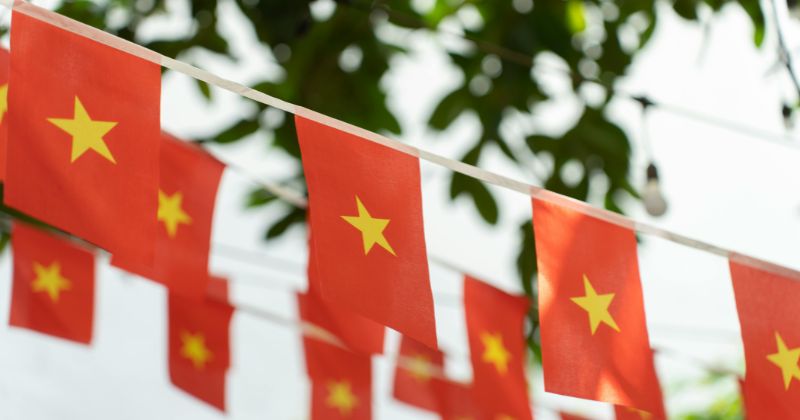China Labor Law – New Judicial Interpretation: Employer’s main Key Liabilities
- Date: October 8, 2025
The “Interpretation on the Application of Law in the Trial of Labor Dispute Cases (II)” (Fa Shi [2025] No. 12) (the “Judicial Interpretation”) was published by the Supreme People’s Court of China on 31 July 2025, and has been effective since 1 September 2025.

The “Interpretation on the Application of Law in the Trial of Labor Dispute Cases (II)” (Fa Shi [2025] No. 12) (the “Judicial Interpretation”) was published by the Supreme People’s Court of China on 31 July 2025, and has been effective since 1 September 2025.
This new Judicial Interpretation addresses long-standing uncertainties in the Chinese labor law, particularly in relation to intra group employments, non-compete provisions enforcement, social insurance obligations, fixed-term contract renewals, and service period arrangements.
| Key Takeaways
The Supreme People’s Court of China issued the new Judicial Interpretation on 31 July 2025, effective September 1, 2025. Such judicial interpretation addresses key labor law issues, with direct implications for employers in areas such as intra group employment contracts, non-compete provisions enforcement, social insurance and renewal of fixed term contract. In summary, the key legal points which are explained by this new Judicial Interpretation are as follows: · Non-compete clauses – such clauses are only enforceable against employees with access to trade secrets or confidential information. These shall be reasonable in scope and duration (maximum length period is two years). Post-employment non-compete provisions require a compensation. Overbroad or unjustified clauses are invalid. · Fixed-term contracts – repeated extensions of the first fixed-term contract (especially beyond one year or just before expiry) may be treated as a second contract, giving the employee the right to request an indefinite-term contract. · Social insurance and housing fund – any agreement to waive or reduce mandatory contributions is void. Non-compliance allows employees to terminate their contract and claim severance. Employers may only recover payments made in lieu of contributions, not severance. · Intra-group employment – if an employee works for affiliated companies without a clear employment contract, the courts may examine actual control (entity paying the salary and establishing the employee’s duties). Without a clear agreement, affiliates may be jointly liable. Thus, tripartite agreements executed between the employee, the parent company and the affiliated company are requested. |

I. New Interpretation Context
China’s labor framework is based primarily on the Labor Law of the People’s Republic of China (1995), the Labor Contract Law (2008 and amended in 2013), and the Social Insurance Law (2011). Judicial interpretations issued by the Supreme People’s Court (the “SPC”) are binding and serve to unify the implementation of the law in practice.
The first interpretation on labor disputes was released in 2021. Rapid changes in employment practices led to this second interpretation after years of consultations.
II. Overview of the Key Legal Clarifications
- Non-Compete Covenants Must Be Lawful and Reasonable
Under Articles 23 and 24 of the Labor Contract Law, post-termination non-compete clauses are permitted for senior managers, senior technical staff and employees with confidentiality obligations.
Validity – the Judicial Interpretation confirms that non-compete are invalid if the employee has no access to trade secrets or confidential information.
Scope – restrictions mut be reasonable in terms of role, geographic area, and duration (maximum two years). Overbroad provisions may not be enforceable.
Compensation – during the post-employment non-compete period, employers must pay monthly compensation. No compensation is required for non-compete obligations that apply during employment.
Breach – if an employee breaches a valid non-compete provision, the employer may claim compensation and seek agreed liquidated damages.
Also, a key clarification under the new Judicial Interpretation is that non-compete obligations applicable during employment are enforceable without additional compensation, as they fall within the employee’s basis duty of loyalty.
- Excessive Extension of Fixed-Term Contracts May Lead to Indefinite-Term Employment
Under Article 14 of the Labor Contract Law, once an employee has signed two consecutive fixed-term contracts, he may request an indefinite-term contract.
The new Interpretation addresses attempts by employers to avoid this rule through repeated extensions of the first contract:
Extended duration – if cumulative extensions of the first fixed-term contract exceed one year, courts may treat it as two contracts, giving the employee the right to request an indefinite-term contract.
Last-minute extensions – extensions made just before a contract expires may also be deemed a second contract if viewed as a circumvention.
- Agreements to waive Social Insurance Contributions Are Invalid
Participation in the statutory social insurance system is mandatory for both employers and employees.
Invalid agreements – any arrangement to waive or reduce contributions, even if requested or agreed by the employee, is void.
Employee rights – if an employer fails to make contributions, the employee may terminate the contract immediately and claim statutory severance.
Employer recovery – once overdue contributions are paid, the employer may recover only the cash allowances or substitutes previously given in lieu of contributions, not the severance.
Housing fund – the same rule applies to the housing provident fund: waivers or underpayments are invalid.
In a nutshell, employers must make full social insurance and housing fund contributions – any waiver arrangement will not be upheld in court.
- Employment across affiliated companies requires clear agreements
In practice, employees are often seconded to, or work concurrently at, affiliated companies. The new Interpretation clarifies how courts will determine the employment relationship in such cases:
-
- Written contract – if a contract exists, it prevails.
- No contract – courts will look at actual practices, such as who directs the work, pays wages and makes social insurance contributions.
- Joint liability – if responsibilities are unclear, both affiliated companies may be held jointly liable for wages, benefits, and other entitlements due to employee.
To avoid disputes and legal ambiguity, the employee, the original employer and the affiliated entity should sign tripartite agreements. These agreements should define the following:
-
- Whether the original employment relationship continues;
- Which entity is responsible for wages and statutory contributions;
- The employee’s job duties and responsibilities, reporting lines, and workplace during secondment;
- Conditions for transfer to a new employer;
- Treatment of severance, years of service and other entitlements.
Share this article
Inquiry Box
Request a Consultation. We'll respond within 12 hours.
Related Articles
Australia Introduces the National Innovation Visa (NIV): A New Pathway for Exceptional Talent
As of 6 December 2024, the Australian Government unveiled a major reform in its migration policy by launching the National...
Read MoreNon-Compete & Non-Disclosure Agreements in Vietnam: What Foreign Investors need to Know
Vietnam has become a key destination for foreign investment in manufacturing, services and technology.
Read MoreFriedland Law Partner Thomas Wong on The Golden Quarter Show: U.S. Families Looking Abroad and the Rise of Asia
As global mobility continues to evolve, more American families are exploring opportunities beyond their borders
Read More


